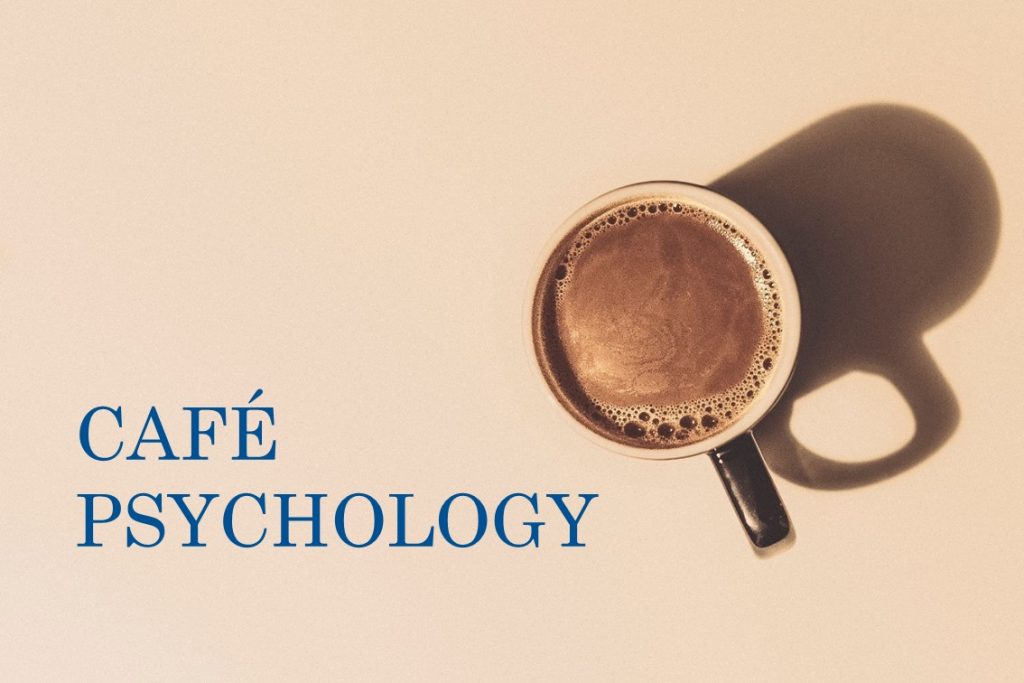Café Psychology is an optional bi-weekly seminar series. It is particularly suited to undergraduate and MSc students but PhD students and staff are also welcome to attend. A range of psychology-related research topics will be covered during the course of the academic year.
Each session lasts about an hour in total, but that includes a talk of about 30 minutes, and plenty of time for the audience to ask questions and discuss the topic. The session is followed by an optional and informal meet-up in K Bar.
Registration is not required – just turn up if you are interested in the topic.
All the talks listed below will start at 5.30pm in KLT4.
30 September (Week 2)
Speaker: Professor Roger Giner-Sorolla
Crisis in psychology? Current controversies in research evidence
What is going on with replication in psychology? What does it mean when a study ‘doesn’t replicate’? Do we need to do and report our research better? As a leader in the movement toward stronger and more transparent science, Professor Giner-Sorolla will explain what the problem is, what some of the reasons for hope are, and how researchers in all areas of psychology can do better practices towards a more steady and stable base of knowledge.
14 October (Week 4)
Speaker: Dr Fanny Lalot
How many migrants are people willing to welcome into their country? The effect of numerical anchoring on migrant acceptance
Relying on a classical anchoring paradigm, we investigated the effect of numerical anchors reported in communication media, which echo political positions on how many migrants should be accepted in one country. I will present the results of four studies that tested the effect of a numerical anchor within a politician’s statement on the number of migrants that people think should be accepted in their home country.
28 October (Week 6)
Speaker: Dr Brianna Beck
Pain in the brain: measuring and changing pain perception
More information to follow.
11 November (Week 8)
Speaker: Dr Pascal Burgmer
Trust in everyday life
Although trust plays a pivotal role in many aspects of life, and despite strong traditions of laboratory- and survey-based work into its determinants and consequences, very little is known about the manifestation of trust and distrust in everyday life. Using preregistered experience-sampling methodology, the present research investigated the prevalence, targets, and correlates of trust (vs. distrust) in people’s natural environments.
25 November (Week 10)
Speaker: Dr Ruben Azevedo
When the lens is too wide: the visual dehumanisation of refugees and its political consequences
Images of identifiable victims can elicit empathic responses and pro-social actions. However, such images are the exception rather than the norm. In the context of humanitarian crises, most news images depict large anonymised masses of people. We here focus on the role that such images play in dehumanising refugees, and on the political consequences of such visualisation. We show how simply looking at particular visual framings, such as large groups, may increase dehumanising attitudes as well as change the spectators’ political behaviour. Thus, what we see in the media and how it is shown has far-reaching consequences for the ways in which we relate to other human beings and our behaviour towards them, and ultimately, for our political systems.

